

THEATRE OF TRAGEDY: European Tour Dates Announced
Norway's THEATRE OF TRAGEDY will be embarking on a European headlining tour in late March. Confirmed dates so far are as follows:
Mar. 31 - Kopenhagen, DEN @ The Rock Apr. 01 - Glauchau, GER @ Alte Spinnerei Apr. 02 - Nürnberg, GER @ Löwensaal Apr. 03 - Frankfurt, GER @ Batschkapp Apr. 04 - Berlin, GER @ Kato Apr. 05 - Hamburg, GER @ Markthalle Apr. 07 - Leiden, NETH @ LVC Apr. 08 - Gent, BEL @ Arena van Vletingen Apr. 09 - London, UK @ Islington Academy Apr. 10 - Paris, FRA @ La Locomotive Apr. 11 - Pratteln, SWI @ Z7 Apr. 12 - Rome, ITA @ Blackout Apr. 16 - Hannover, GER @ Musikzentrum Apr. 27 - Oslo, NOR @ John Dee Apr. 28 - Bergen, NOR @ Kvarteret May. 06 - Stavanger, NOR @ Folken May. 12 - Tromsø, NOR @ Driv May. 13 - Hamar, NOR @ TBA
THEATRE OF TRAGEDY will release their new album, "Storm" , in Germany and Switzerland on Friday, March 24, 2006 via AFM Records . The rest of Europe will follow on Monday, March 27. A U.S. release date will be announced later. The CD was produced by Rico Darum and mixed by Greg Reely ( PARADISE LOST , FEAR FACTORY , FRONT LINE ASSEMBLY , SKINNY PUPPY , etc.) at The Green Jacket studios in Richmond, B.C., Canada. Songtitles set to appear on the album include "Storm" , "Begin and End" , "Disintegration" , "Fade" and "Dust" . More titles will be revealed later on."
THEATRE OF TRAGEDY 's new album will be the group's first to feature singer Nell ( THE CREST ),who replaced Liv Kristine Espenaes Krull (currently in LEAVES' EYES ) in early 2004. Download audio samples of two demo songs recorded last year: "Fade" ( mp3 ), "Seven" ( mp3 ).
Comments Disclaimer And Information
BLABBERMOUTH.NET uses the Facebook Comments plugin to let people comment on content on the site using their Facebook account. The comments reside on Facebook servers and are not stored on BLABBERMOUTH.NET. To comment on a BLABBERMOUTH.NET story or review, you must be logged in to an active personal account on Facebook. Once you're logged in, you will be able to comment. User comments or postings do not reflect the viewpoint of BLABBERMOUTH.NET and BLABBERMOUTH.NET does not endorse, or guarantee the accuracy of, any user comment. To report spam or any abusive, obscene, defamatory, racist, homophobic or threatening comments, or anything that may violate any applicable laws, use the "Report to Facebook" and "Mark as spam" links that appear next to the comments themselves. To do so, click the downward arrow on the top-right corner of the Facebook comment (the arrow is invisible until you roll over it) and select the appropriate action. You can also send an e-mail to blabbermouthinbox(@)gmail.com with pertinent details. BLABBERMOUTH.NET reserves the right to "hide" comments that may be considered offensive, illegal or inappropriate and to "ban" users that violate the site's Terms Of Service. Hidden comments will still appear to the user and to the user's Facebook friends. If a new comment is published from a "banned" user or contains a blacklisted word, this comment will automatically have limited visibility (the "banned" user's comments will only be visible to the user and the user's Facebook friends).
- Statistics Stats
- You are here:
Theatre of Tragedy
Theatre of tragedy concert setlists & tour dates, theatre of tragedy at stiftelsen folken, stavanger, norway.
- Hide and Seek
- Bring Forth Ye Shadow
- Ashes and Dreams
- A Rose for the Dead
- And When He Falleth
- Edit setlist songs
- Edit venue & date
- Edit set times
- Add to festival
- Report setlist
Theatre of Tragedy at John Dee, Oslo, Norway
- Der Tanz der Schatten
Theatre of Tragedy at Carioca Club, São Paulo, Brazil
Theatre of tragedy at el teatro colegiales, buenos aires, argentina, theatre of tragedy at teatro teletón, santiago, chile, theatre of tragedy at discoteca vocé, lima, peru, theatre of tragedy at circo volador, mexico city, mexico, theatre of tragedy at cine-teatro de corroios, corroios, portugal.
- A Hamlet for a Slothful Vassal
Theatre of Tragedy at Caracol, Madrid, Spain
Theatre of tragedy at salamandra 1, l'hospitalet de llobregat, spain.

More from this Artist
- Artist Statistics
- Add setlist
Most played songs
- And When He Falleth ( 28 )
- Cassandra ( 27 )
- Machine ( 27 )
- Der Tanz der Schatten ( 26 )
- Fragment ( 24 )
More Theatre of Tragedy statistics
The Countess Les Mémoires Fall Liv Kristine The Sirens
View covered by statistics
Artists covered
No songs of other artists were covered by Theatre of Tragedy yet. Have you seen Theatre of Tragedy covering another artist? Add or edit the setlist and help improving our statistics!
Gigs seen live by
185 people have seen Theatre of Tragedy live.
MasterOfTragedy Laurana LongGone Vivalalarsen yurimurakami alcoholocaust EduGuimaraes neferisis herbalmovement Exxxec Blooddawn brunomarxs HarukaEX Saga05061982 sepozzsla Gon__ fb:1324380656 Roy_Bacci fb:100000579965576 PatoO carinasvc Melusine mariieraymond nicollapse Zevlag FelipeRoman Valejuc MatiasArteaga sergioduartesdm lavres cesar_cuadra -Dai- guilledil fb:1751253470 loulaubye Desperate_Girl martlycia daemonio lmladrian one_solo tugametal71 anahnarciso Fabiolival ChristkoCCR Elvira_Ikiru lau_thekadencia LeFay Ereticy hprat OnlyDeathIsReal
Showing only 50 most recent
Theatre of Tragedy on the web
Music links.
- Theatre of Tragedy Lyrics (de)
- Official Homepage
Tour Update
Marquee memories: alien ant farm.
- Alien Ant Farm
- Apr 24, 2024
- Apr 23, 2024
- Apr 22, 2024
- Apr 21, 2024
- Apr 20, 2024
- Apr 19, 2024
- FAQ | Help | About
- Terms of Service
- Ad Choices | Privacy Policy
- Feature requests
- Songtexte.com
Theatre of Tragedy Community
Tickets, concerts tour 2024, theatre of tragedy's information, followers 217 people are going or interested.

To see who follows this room you must be registered.
Gallery See all
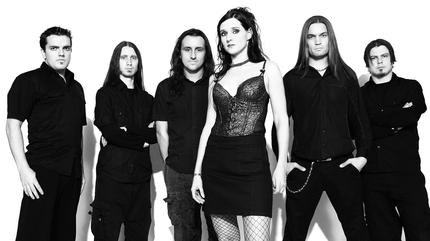
Related Artists

The 69 Eyes

Cradle of Filth
10 Concerts
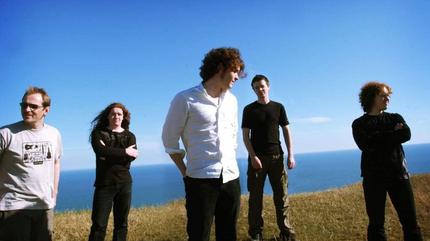
Lacuna Coil
16 Concerts

Related Events

Delain concert in Dublin
Thank you for watching
- Share full article
Advertisement
Here’s What We Know About the Moscow Concert Hall Attack
The assault on a popular concert hall was the deadliest act of terrorism in the Russian capital in more than a decade.

By Ivan Nechepurenko
- Published March 23, 2024 Updated March 25, 2024
An attack Friday at a popular concert venue near Moscow killed 137 people, the deadliest act of terrorism the Russian capital region has seen in more than a decade.
The Islamic State claimed responsibility for the attack; American officials have attributed it to ISIS-K, a branch of the group.
Russian officials and state media have largely ignored ISIS’s claim of responsibility and instead suggested that Ukraine was behind the violence. Ukraine has denied any involvement, and American officials say there is no evidence connecting Kyiv to the attack.
Russian authorities have detained at least 11 people, including four migrant laborers described as Tajik citizens who have been charged with committing a terrorist act, but they have not identified most of the accused assailants or their motives.
Here’s a closer look at the attack.
What happened?
The gunmen entered the Crocus City Hall building, one of the biggest entertainment complexes in the Moscow area, with capacity of more than 6,000, shortly before a sold-out rock concert was scheduled to start. Armed with automatic rifles, they began shooting.
Using explosives and flammable liquids, Russian investigators said, they set the building ablaze, causing chaos as people began to run. The fire quickly engulfed more than a third of the building, spreading smoke and causing parts of the roof to collapse. Russia’s emergency service posted a video and pictures from after the fire showing charred seating and firefighters working to remove debris.
Russian law enforcement said that people had died from gunshot wounds and poisoning from the smoke.
At least three helicopters were dispatched to extinguish the fire or to try to rescue people from the roof. The firefighters were only able to contain the fire early on Saturday; the emergency service said it was mostly extinguished by 5 a.m.
The search for survivors ended on Saturday, as details about the victims began to emerge. Many of the more than 100 people injured in the attack were in critical condition.
Russia’s Investigative Committee, a top law-enforcement body, said on Sunday that 137 bodies had been recovered from the charred premises, including those of three children. It said that 62 victims had been identified so far and that genetic testing was underway to identify the rest.
Where are the assailants?
Attackers were able to flee the scene. Early on Saturday, the head of Russia’s top security agency, the F.S.B., said that 11 people had been detained in the connection to the attack, including “all four terrorists directly involved.” The four men were arraigned late Sunday and charged with committing a terrorist act, according to state and independent media outlets, and they face a maximum sentence of life in prison.
The press service of the Basmanny District Court said that the first two defendants, Dalerjon B. Mirzoyev and Saidakrami M. Rachalbalizoda, had pleaded guilty to the charges.
It did not specify any plea from the other two — Muhammadsobir Z. Fayzov, a 19-year-old barber and the youngest of the men charged, and Shamsidin Fariduni, 25, a married factory worker with an 8-month-old baby — according to Mediazona, an independent news outlet.
The men looked severely battered and injured as they appeared in court, and videos of them being tortured and beaten while under interrogation circulated widely on Russian social media.
There were signs that Russia would try to pin blame on Ukraine, despite the claim of responsibility by the Islamic State. The F.S.B. said in a statement that the attack had been carefully planned and that the terrorists had tried to flee toward Ukraine.
How are Russians responding?
President Vladimir V. Putin, who claimed victory in a presidential election last weekend, did not publicly address the tragedy until Saturday afternoon. In a five-minute address to the nation, he appeared to be laying the groundwork to blame Ukraine for the attack, claiming that “the Ukrainian side” had “prepared a window” for the attackers to cross the border from Russia into Ukraine.
But he did not definitively assign blame, saying that those responsible would be punished, “whoever they may be, whoever may have sent them.”
The attack has punctured the sense of relative safety for Muscovites over the past decade, bringing back memories of attacks that shadowed life in the Russian capital in the 2000s.
Russia observed a national day of mourning on Sunday as questions lingered about the identities and motives of the perpetrators. Flags were lowered to half-staff at buildings across the country.
Neil MacFarquhar contributed reporting.
Ivan Nechepurenko covers Russia, Ukraine, Belarus, the countries of the Caucasus, and Central Asia. He is based in Moscow. More about Ivan Nechepurenko
- Moscow concerts Moscow concerts Moscow concerts See all Moscow concerts ( Change location ) Today · Next 7 days · Next 30 days
- Most popular artists worldwide
- Trending artists worldwide
- Tourbox for artists
Search for events or artists
- Sign up Log in
- Get the app
- Moscow concerts
- Change location
- Popular Artists
- Live streams
- Deutsch Português
- Popular artists
Theatre Of Tragedy
- On tour: no
- Upcoming 2024 concerts: none
18,809 fans get concert alerts for this artist.
Join Songkick to track Theatre Of Tragedy and get concert alerts when they play near you.
Find your next concert
Join 18,809 fans getting concert alerts for this artist
Similar artists with upcoming concerts
Tours most with, past concerts.
Carioca Club - Pinheiros
Cadillac Club
View all past concerts
Live reviews
I absolutely LOVE this band. They are so unique and gorgeous. The lead singer is amazing and makes their sound and efforts TRULY one of a kind. Their tunes play out in an extremely scary and beautiful way. They are relentlessly heavy and just full of wonder and so beautiful.
In case you're not familiar, they're a very very heavy, almost ballad sort of metal but with speedy parts in their tunes and vocals as beautiful as opera. The show I went to had an incredible light show and the energy in the place was absolutely insane. It's such a great mix with how strong and artistic their music is.
Theatre of Tragedy's name is just fitting because of how artistic and meticulously their music is composed, along with the devastating guitar riffs and heavy metal feel. By the end of the show I was completely worn out and thoroughly satisfied. I will never forget hearing them. I now have their most epic songs on my iPod and I listen in the car on long trips to keep my energy up. This type of dark metal with contrasting evil male vocals and lighter, though still eerie, female vocals, is one of my favorite things to listen to live and Theatre of Tragedy will not disappoint you.
Report as inappropriate

Posters (2)

Find out more about Theatre Of Tragedy tour dates & tickets 2024-2025
Want to see Theatre Of Tragedy in concert? Find information on all of Theatre Of Tragedy’s upcoming concerts, tour dates and ticket information for 2024-2025.
Unfortunately there are no concert dates for Theatre Of Tragedy scheduled in 2024.
Songkick is the first to know of new tour announcements and concert information, so if your favorite artists are not currently on tour, join Songkick to track Theatre Of Tragedy and get concert alerts when they play near you, like 18809 other Theatre Of Tragedy fans.
Last concert:
Concerts played in 2024:
Touring history
Most played:
- Hildesheim (2)
- Leipzig (2)
Appears most with:
- Lacuna Coil (5)
- Where Angels Fall (5)
- L'Âme Immortelle (3)
- Wolfsheim (3)
- Svbway To Sally (3)
Distance travelled:
Similar artists
- Most popular charts
- API information
- Brand guidelines
- Community guidelines
- Terms of use
- Privacy policy
- Cookies settings
- Cookies policy
Get your tour dates seen everywhere.
- But we really hope you love us.
Moscow concert hall attack: what we know about shooting in Russia
- Medium Text
RESPONSIBILITY
What has russia said.

THE ATTACKERS
Sign up here.
Reporting by Reuters Writing by Guy Faulconbridge in Moscow, Felix Light in Tbilisi and Lucy Papachristou in London Editing by Andrew Osborn, Frances Kerry, Nick Macfie and Michael Perry
Our Standards: The Thomson Reuters Trust Principles. New Tab , opens new tab

Thomson Reuters
As Moscow bureau chief, Guy runs coverage of Russia and the Commonwealth of Independent States. Before Moscow, Guy ran Brexit coverage as London bureau chief (2012-2022). On the night of Brexit, his team delivered one of Reuters historic wins - reporting news of Brexit first to the world and the financial markets. Guy graduated from the London School of Economics and started his career as an intern at Bloomberg. He has spent over 14 years covering the former Soviet Union. He speaks fluent Russian.
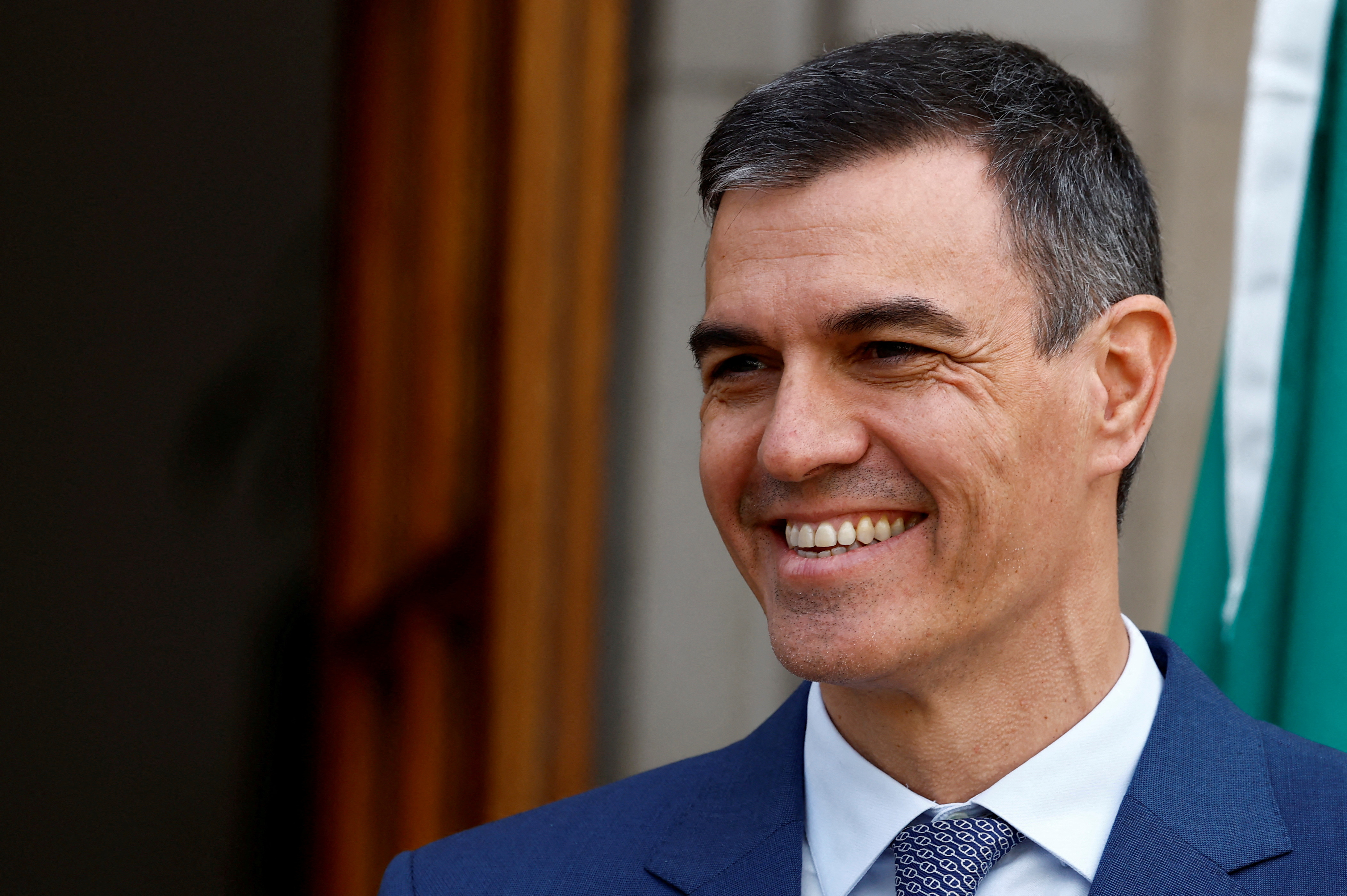
World Chevron
A 6.1 magnitude earthquake struck just off Taiwan's eastern county of Hualien on Saturday, the island's weather administration said, with no immediate reports of damage.
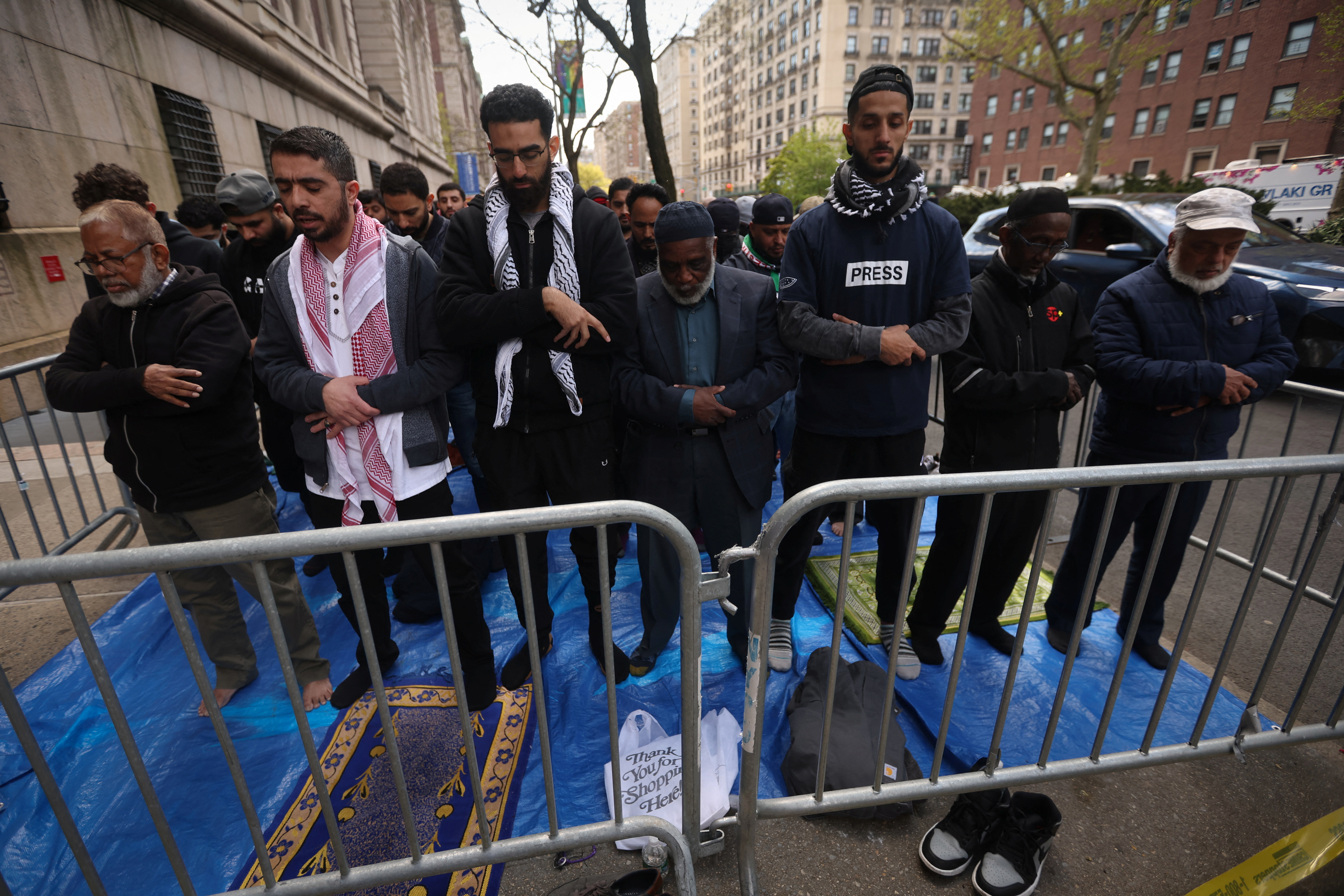
China will host Palestinian unity talks between Islamist militant group Hamas and its rivals Fatah, the two groups and a Beijing-based diplomat said on Friday, a notable Chinese foray into Palestinian diplomacy amid the war in the Gaza Strip.
Three missiles were sighted approximately 15 nautical miles southwest of Yemen's Mokha, British security firm Ambrey said on Friday, and the United Kingdom Maritime Trade Operations (UKMTO) said that one vessel was damaged.
An Israeli strike in Lebanon's Beqaa region has killed a member of a Lebanese militant group that has fired rockets across the southern border at Israel, the Israeli military and a security source said on Friday.

Theatre Of Tragedy
Heavy Metal band.
Follow Theatre Of Tragedy on Ents24 to receive updates on any new tour dates the moment they are announced...
- Be the first to know about new tour dates
- Alerts are free and always will be
- We hate spam and will never share your email address with anyone else
- More than a million fans already rely on Ents24 to follow their favourite artists and venues
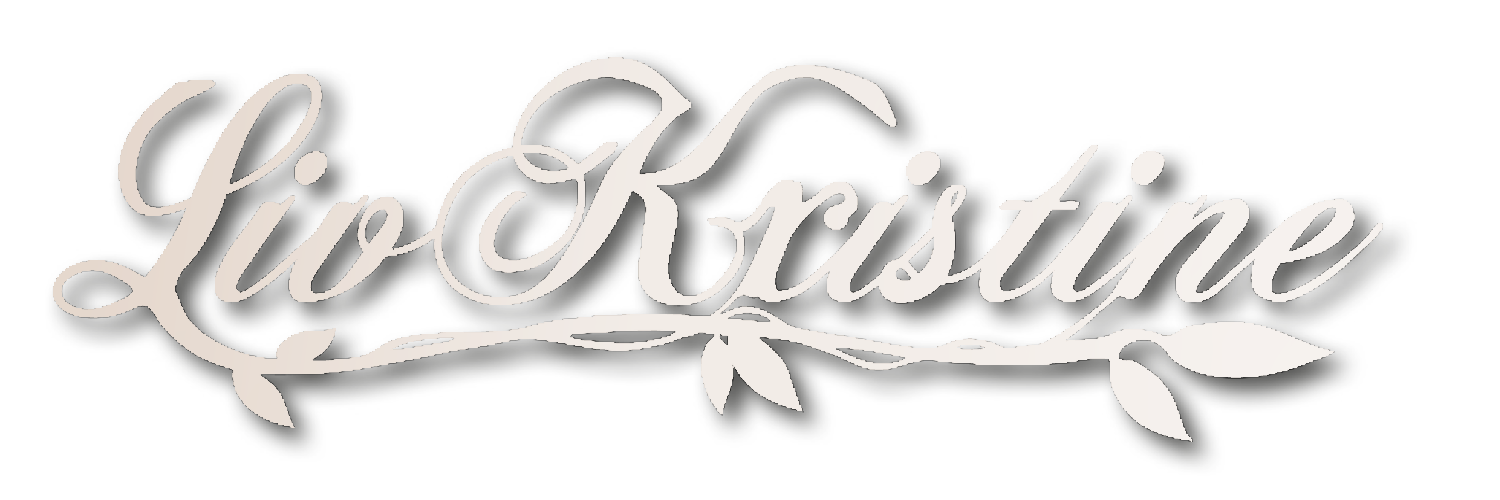
Upcoming Shows:
20.04.2024 erfurt(d), from hell neu, 31.07. – 03.08.2024 wacken(d), wacken open air 2024 neu, 16.08.2024 saarbrücken(d), phantasie und mittelaltertage 2024, experience singing & strengthening your voice with liv kristine – karmasonic.
Brand new homepage – Karmasonic – The place to book your personal vocal coaching sessions & acquire your own paintings by Liv Kristine
DEUS EX MACHINA
LIV KRISTINE – DEUS EX MACHINA as YIN YANG & BLACK LP with BONUS TRACK and DOUBLE DIGI SLEEVE CD with demos and many remixed tracks.
You can preorder in our shop now:
Liv Kristine webstore: https://livkristine.net/shop/
Experience Liv K. Masterclass
You can book Liv Kristine for a 3-4 hour masterclass for groups of singers and non-singers, children, music students, for high schools, academies etc. These were some of the themes taught in Cyprus, February 2023:
⁃ Karmasonic: Becoming my VOICE- a lifelong experience.
⁃ The benefits of singing. ⁃ VOICE awareness – breath, connection, resonance, visualisation. ⁃ Singing – a natural talent, a skill or is it part of language acquisition? ⁃ Authenticity in voice. Courage/Confidence (pitch-matching, amusia). Identity and motivation. ⁃ Experience various singing techniques. Awareness of vocalisation – „Feeling it“. ⁃ Tricks for stage & studio (warm-up, pose, mental setting, stage Fear, wellness/vocal chords, resonance with your audience etc.)
Name: Liv Kristine Espenæs Date of birth: February 14th, 1976 Place of birth: Stavanger, Norway Zodiac sign: Aquarius Eyes: blue Hair: blonde Parents: H. Espenæs / Liv E. Davidsen Siblings: Carmen Elise Espenæs Marital status: Mother of Leon and married to Michael Espenæs
I am a Norwegian songstress, holistic vocal coach, painter, primary school teacher and teacher for children with special needs, wife and mother. I have been on numerous musical adventures since my early teens. The name my parents gave her means life, and this is exactly what I stand for – creating music in the purest, highest version of my artistic heart and mind, to live it and to share it with the world. The basic frequency of everything I do is authenticity, freedom, balance and love. My autodidactic way into music and career reflects my strong individuality and courage to create with a free artistic heart, inviting my audience to experience musical and tonal aesthetics on a highly individual and elevating level. In the mid nineties my life changed. A blessing. I experienced a lot of fame with my Norwegian band THEATRE OF TRAGEDY, moreover, as a solo artist with my first own album Deus Ex Machina, then in the new millennium with LEAVES‘ EYES, MIDNATTSOL and various projects. My musical achievements are various, e.g. a GRAMMY AWARD nomination for the song „Nymphetamine“ in cooperation with Cradle of Filth, 500.000 albums sold with THEATRE OF TRAGEDY, I got to tour and meet my dear fans in more than 50 countries, I was lucky to enter the official charts a few times as well as European club, DJ, dance, rock and alternative charts. So far, I have released nearly 20 albums with my bands and projects since 1995, and I feel like I’m just in the middle of my artistic path. I released my single „SKYLIGHT“ on Allegro Talent Media in December 2019, which was followed by a compilation EP release „HAVE COURAGE DEAR HEART” in April 2021 with brand new studio tracks and live recordings (live in Nagold, 2019). Moreover, in April 2023 I released my sixth full-length album „RIVER OF DIAMONDS“, composed in tight cooperation with my Norwegian friend and composer of „AÉGIS“, Tommy Olsson. Each song radiates a unique paradigm of depth and width of sound: „To me, aesthetics in music lies in the artist’s true and free nature of combining instruments and their chord progression with the most inspiring and interesting tonal flow, the phonetics of the words sung in the most delicate and personal singing manner, being in its expression one unique peace of manifestation coming from the artist’s heart. Music is to me a delicate dance of color-and-light, I find both balance and freedom in these energetic spheres. Music is pure elevation, sound and colors in one perfect expression, it just takes me to a higher level of passion and understanding of the whole universe and of human emotions, moreover, it has a bigger meaning, a special connection to our soul“. The new compositions and lyrics are exactly this – highly inspired by romanticism, the many facets of life, especially unveiling those feelings deeply connected to the innermost of our souls and authentic selves, moreover, the greatness and mysteries of the universe, nature, and the power of karma.

Discography
Liv kristine.

Leaves´Eyes

Theatre of Tragedy

Experiences - Projects / cooperations
1997 Atrocity – Werk 80 (Album) 1999 Bravo – The Hits ‘99 – One Love 2000 Atrocity – Gemini (Album) 2004 Atrocity – Atlantis (Album) 1998 Heavenwood – Downcast / Swallow 1998 Atrocity & Silke Bischoff – Blue Moon 1999 Weltenbrand – The Devil Gets the Profiteer / Der Untergang von Trisona 2000 Das Ich – Des Satans neue Kleider – Atrocity Remix / Re-laborat 2002 Atrocity – More / Sampler Thank you – A Tribute to The Sisters of Mercy 2004 Genius – To be free / A Rock Opera Part II 2004 Immortal Rites – Mirror Reflections / Art of Devolution 2004 Hortus Animae – Summoning of the Muse / Sampler The Lotus Eaters – Dead Can Dance Tribute 2004 Cradle of Filth – Nymphetamine / Nymphetamine 2005 Umbra et Imago – Ein letztes Mal – Leaves’ Eyes Remix / Motus Animi 2005 Infinity – Album Part II (tba) 2005 Only If – Sampler Enya Tribute 2006 Delain – A day For A Ghost (duet with Marco Hieleta (Nightwish) – See Me In Shadow / Lucidity 2008 Atrocity – Werk 80 II (Album) 2008 Doro – Celebrate 2012 Bob Katsionis – Rendez-Vouz In The Sky 2013 Atrocity – Okkult (Album) 2013 Samsas Traum – Niemand, niemand anderem als Dir / Niemand, niemand anderem als dir 2013 Emerald Sun – Call of Nature 2013 Romanthica – Despierta / Eterno 2013 Tyr – The Lay of our Love 2013 Melted Space – Dying Legend 2014 Primal Fear – Born with a broken Heart 2014 Savn – I Am Free / Savn 2015 Hydra – Swath of Destruction / CD Malachite Skies 2016 Eden’s Curse – Unconditional / Cardinal 2016 Tanzwut – Stille Wasser / Schreib Es mit Blut 2016 Hortus Animae – There’s No Sanctuary / There’s No Sanctuary 2017 Cradle of Filth – Vengeful Spirit / Cryptoriana – The Seductiveness of Decay 2017 Akoma – Revangels / Revangels 2017 Orden Ogan – Come with Me to the other Side / Gunmen 2018 Lux in Tenebris – The Grand Design 2018 Ben Blutzukker – Queen of the Nite 2018 Myrkand – Chthonian Cyclops 2019 The Sabbathian – Head of a Traitor 2019 Savn – The End (album) 2019 UNzensiert – Du Fehlst / Unsere Zeit 2019 Krayenzeit – Regen und Sturm / Saitentänzer 2020 Tanja Hansen – Silence of the Tide 2020 Ben Blutzukker – Crucified 2021 Glassgod – Mankind 2021 Sollys (Pete & Liv Kristine) – Soul Pristine 2021 The Implicate Order – The Will of the Blade/In Dreams 2022 Tales of a Sleeping Giant – Myths, Tales and Disasters (album) 2022 Mortemia – Decadence Deepens Within
The Sirens 2014 Sisters of the Earth 2014 Embracing the Seasons 2015 Fearless
Moscow concert attack: More than 60 reported dead; ISIS claims responsibility
This live blog has ended. For the most recent updates, please click here .
What we know about the Moscow concert attack
- Men in camouflage broke into a Moscow concert hall and opened fire, shooting an unknown number of people, Russia’s prosecutor general said.
- The terror group ISIS has claimed responsibility but did not provide proof of the claim, which was made on ISIS-affiliated news agency Amaq on Telegram.
- Russia's Investigative Committee said that more than 60 people are dead after the attack at Crocus City Hall. Officials have said more than 100 others were injured.
- A fire also started inside Crocus City Hall, a large concert venue northwest of central Moscow. Firefighters have evacuated about 100 people from the basement of the building and efforts are underway to rescue people from the roof, Russian emergency officials said.
- Russia officials said they were investigating the attack as a terrorist act.
- A popular rock band was scheduled to play what appeared to be a sold-out show at the venue, which has a maximum capacity of more than 9,000 people.
Three children among those killed, state media reports
Chantal Da Silva
Three children were among the more than 60 people killed in yesterday's attack at Crocus City Hall, Russian news agency RIA Novosti reported, citing the Russian Ministry of Health.
Officials have warned that the death toll connected to the deadly incident may increase as the investigation continues.

Xi sends condolences to Putin
Chinese President Xi Jinping sent condolences to Russian President Vladimir Putin on Saturday after a deadly shooting at a concert hall near Moscow, saying China opposes all forms of terrorism and strongly condemns terrorist attacks.
China firmly supports the Russian government’s efforts to maintain national security and stability, Xi said, according to CCTV state television.
Moscow bloodshed comes two decades after some of worst attacks in Russia
Phil Helsel
The shooting attacks in Moscow are the latest in a series of deadly terror attacks in the country since the 2000s.
In 2004, militants from Chechnya and elsewhere took hostages at a school in Beslan in southern Russia.
The militants demanded a withdrawal from Chechnya. Hostages were kept in a gymnasium, and 334 died — half of them children — when gunfire and explosions erupted when it was stormed. Hostages’ families were critical of the rescue operation. Russian prosecutors later cleared authorities .
Two years prior, in 2002, Chechen separatists attacked the Dubrovka Theater in Moscow and took more than 700 people hostage. Russian forces used gas, and 129 hostages died. The attackers were killed.
More recently, in 2017 a suicide bomber from Kyrgyzstan killed 15 people as well as himself in an attack on a St. Petersburg subway. In 2013, two bombers killed a combined 34 people in attacks on a railway station and a trolleybus in Volgograd.
The group Islamic State, also known as ISIS, claimed responsibility for the attacks Friday at the Crocus City Hall venue.
Putin wishes victims well, deputy prime minister says
President Vladimir Putin is thinking of those injured in today’s attack and thanked doctors, a Russian government official said according to state media.
State media TASS reported that “Putin wished all those injured in the emergency at Crocus City Hall to recover and conveyed his gratitude to the doctors, Golikova said,” referring to Tatiana Golikova deputy prime minister for social policy, labor, health and pension provision.
More than 60 dead, and death toll could grow, Russian agency says
Russia’s Investigative Committee said Saturday that more than 60 people have died in the attack, and warned the number may increase.

“The bodies of the dead are being examined. It has been previously established that more than 60 people died as a result of the terrorist attack. Unfortunately, the number of victims may increase,” according to the Investigative Committee, which is a federal state agency.
Russia's Ministry of Internal Affairs and the security agency FSB are continuing to investigate, the committee said in a statement, and weapons and ammunition have been found.
U.S. warned Russia about planned terrorist attack in Moscow, NSC says
Monica Alba
The United States shared information about a potential terrorist attack in Moscow with Russia’s government earlier this month, a spokesperson for the National Security Council said.
The U.S. Embassy in Russia on March 7 warned U.S. citizens to avoid crowds and said it was monitoring reports that extremists might attack large gatherings in Moscow.
“Earlier this month, the U.S. Government had information about a planned terrorist attack in Moscow — potentially targeting large gatherings, to include concerts — which prompted the State Department to issue a public advisory to Americans in Russia,” NSC spokesperson Adrienne Watson said.
“The U.S. Government also shared this information with Russian authorities in accordance with its longstanding ‘duty to warn’ policy,” Watson said.
Putin recently dismissed ‘provocative’ warning about potential attacks
In remarks that aired three days ago, Russian President Vladimir Putin accused the West of “provocative statements” about potential terror attacks in Russia, and dismissed them.
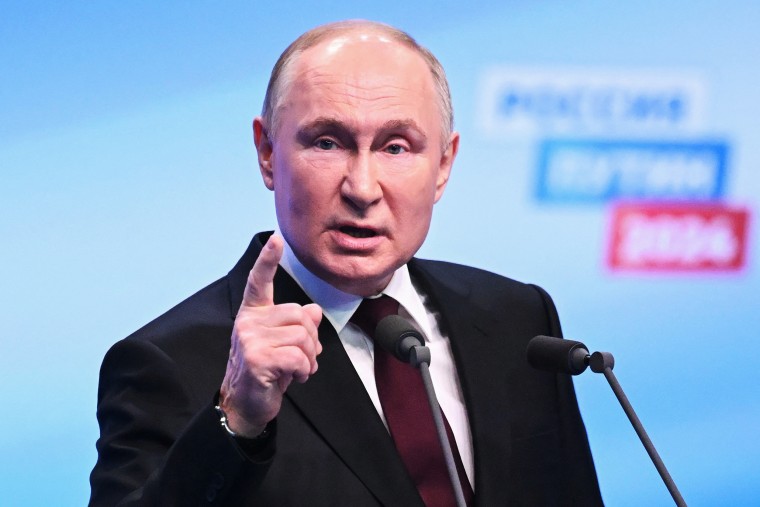
“I’ll remind you of recent, let’s say directly, provocative statements of certain official Western structures about potential terror attacks in Russia,” Putin said.
“All of this looks like obvious blackmail and an attempt to intimidate, destabilize our country,” he said before the state security agency FSB.
Putin in those remarks did not specify a country or warning. The U.S. embassy in Russia on March 7 warned U.S. citizens to avoid crowds .
“The Embassy is monitoring reports that extremists have imminent plans to target large gatherings in Moscow, to include concerts, and U.S. citizens should be advised to avoid large gatherings over the next 48 hours,” the U.S. embassy warned.
Guards at concert hall didn't have guns, state news says
The Associated Press
Guards at the concert hall didn’t have guns, and some could have been killed at the start of the attack, Russian media reported.
Some Russian news outlets suggested the assailants fled before special forces and riot police arrived.
Reports said police patrols were looking for several vehicles the attackers could have used to escape.
U.S. had been gathering intelligence that ISIS could attack Russia
Ken Dilanian
The U.S. had been gathering intelligence for months that ISIS could mount a mass casualty attack in Russia, two U.S. officials confirmed to NBC News.
That information led to a March 7 warning issued by the U.S. embassy in Russia about possible extremist attacks, including at concerts, urging people to stay away from large gatherings, one of the officials said.
That official said the claim of responsibility today by ISIS appears to be genuine, though no final assessment had been made about who was responsible.
Some Moscow concertgoers filmed events as they unfolded Friday night, when gunmen opened fire inside a theater and people ran to take cover in fear for their lives.
Witness says gunfire was first thought to be construction noise
A witness to today’s armed attack on Moscow’s Crocus City Hall told a state news agency that they first mistook the gunfire for sounds of an installation being dismantled.
“First, we started hearing typical loud pops, but it was impossible to understand that they were gunshots. We thought that something was falling, as exhibitions were being dismantled at that moment, and someone seemed to be dropping something large,” Mikhail Semyonov told TASS .
“Then, the bangs were getting more and more frequent. Suddenly, there was a scream, and the bangs started to be heard as bursts. Then it became clear that it was shooting,” he said.
ISIS claims responsibility for attack but does not provide proof
The terror group Islamic State has claimed responsibility for the attack in Moscow.
The group, also known as ISIS, did not provide any proof of its claim, which came from ISIS-affiliated news agency Amaq on Telegram.
The group’s members have carried out a number of terror attacks, including the 2015 attacks in Paris that killed 130 people.
Children among the victims, Russia's children commissioner says
Yuliya Talmazan
Russia’s commissioner for children’s rights, Maria Lvova-Belova, said children were among the victims of tonight's attack.
"Information about their condition is regularly updated," Lvova-Belova said on Telegram. "Any additional assistance will be provided immediately."
She later told Russia 24 TV channel that at least two children had been injured, including one boy with a gunshot wound.
Earlier, Russian officials released a preliminary casualty toll of at least 40 people dead and more than 100 injured.
France, U.K., Germany condemn attack
Officials from France, the U.K. and Germany were among those who expressed their condolences to the victims of the attack at the Crocus concert hall.
"The images of the terrible attack on innocent people in Crocus City Hall near #Moscow are horrific," Germany's Foreign Office said on X . "The background must be investigated quickly. Our deepest condolences with the families of the victims."
"We condemn the terrorist attack in the Crocus City Hall near Moscow," the U.K.'s embassy in Russia said . "This is a terrible tragedy."
Meanwhile, France's foreign ministry called for "full light" to be shed on "these heinous acts."
Public events across Russia called off after attack
Several regional leaders across Russia, including in the annexed Kherson region of Ukraine, have canceled public events this weekend over security considerations after the deadly concert attack in Moscow.
Shortly after the attack, Moscow Mayor Sergey Sobyanin canceled all sports, cultural and other public events in Moscow this weekend. State news agency TASS also quoted Russia's cultural ministry as saying that mass and entertainment events in federal cultural institutions have been canceled in the coming days.
Zelenskyy adviser speaks out about attack
President Volodymyr Zelenskyy’s adviser denied that Ukraine was involved in the deadly Crocus concert hall attack.
“Ukraine certainly has nothing to do with the shooting/explosions in the Crocus City Hall (Moscow Region, Russia),” Mykhailo Podolyak wrote on X. “It makes no sense whatsoever.”
No evidence has emerged to suggest Ukraine may have been involved, but Ukrainian officials may be trying to pre-empt accusations, as some Kremlin hawks have already started pointing at Kyiv.
Asked whether the shooting was at all tied to the war in Ukraine, U.S. National Security Council spokesperson John Kirby said: “There is no indication at this time that Ukraine, or Ukrainians, were involved in the shooting, but again, this just broke. We’re taking a look at it, but I would disabuse you at this early hour have any connection to Ukraine.”
Videos posted to social media appear to show chaos inside Moscow's Crocus City Hall during and after a terrorist attack.
Some videos include what sound like gunshots and show men with rifles, as concertgoers frantically try to exit the venue.
State Department issues warning to Americans in Moscow
Jason Abbruzzese
The State Department said that the U.S. Embassy in Moscow is aware of the terrorist attack on Crocus City Hall and that U.S. citizens should avoid the area and follow the instructions of local authorities.
"The U.S. government’s ability to provide routine or emergency services to U.S. citizens in Russia is severely limited, particularly in areas far from the U.S. embassy in Moscow, due to Russian government limitations on travel for U.S. embassy personnel and staffing, and the ongoing suspension of operations, including consular services, at U.S. consulates in Russia," the State Department said in a message posted to its website .
'What a nightmare in Crocus,' Widow of opposition leader Alexei Navalny condolences about concert attack
Yulia Navalnaya, the widow of Russian opposition leader Alexei Navalny who died in prison last month, expressed her condolences about the attack Friday.
"What a nightmare in Crocus," Navalnaya wrote on X. "Condolences to the families of the victims and quick recovery to the injured. Everyone involved in this crime must be found and held accountable."
320 firefighters, 3 helicopters working to put out fire
Russia's Ministry of Emergency Situations said the number of rescue crews responding to the attack is growing and now includes more than 320 firefighters, 130 emergency vehicles and three helicopters dumping water on the burning concert venue.
Moscow regional governor says 40 dead, more than 100 injured
Moscow Regional Governor Andrei Vorobyov said on Telegram that at least 40 people are dead and more than 100 injured in the terrorist attack, confirming figures previously reported by Russian state news.
Putin informed about concert venue attack 'in the first minutes,' Kremlin spokesperson says
Kremlin spokesperson Dmitry Peskov said President Vladimir Putin was informed about the shooting at the Crocus concert hall "in the first minutes" of the attack, Russian state news agency RIA reported.
The president is receiving information about what is happening and the measures being taken through all relevant services and is giving necessary instructions, Peskov said according to RIA.
Russian journalist was inside concert venue when gunmen entered
Russian news agency RIA Novosti said on Telegram that one of its reporters was inside the venue when gunmen entered and began shooting concertgoers.
The journalist said that at least three unmasked gunmen in camouflage entered the hall a few minutes before 8 p.m. Moscow time. They shot people point-blank and threw incendiary bombs, according to the journalist.
Russia's foreign ministry spokesperson calls incident 'bloody terrorist attack'
Maria Zakharova, spokesperson for Russia's foreign ministry, called the Friday night incident at the Crocus City Hall in Moscow a "bloody terrorist attack" as she called for "strong condemnation" from the international community.
"Now, as the Russian authorities have stated, all efforts are being devoted to saving people," Zakharova said. "The entire world community is obliged to condemn this monstrous crime!"
U.S. national security spokesperson says embassy has told Americans to avoid large gatherings in Moscow
Kyla Guilfoil
National Security Council Spokesman John Kirby addressed the attack in Moscow at a White House press briefing Friday afternoon, calling it a “terrible, terrible shooting attack.”
“The images are just horrible and just hard to watch and our thoughts obviously are going to be with the the victims,” Kirby said.
Kirby added that the U.S. embassy has notified all Americans in Moscow to avoid large gatherings, concerts, shopping malls, etc., and “stay put where they are” for their safety.
Russian media says 40 dead, more than 100 injured at concert attack

TASS, Russia's state-owned news agency, and RIA Novosti are reporting that Russia's FSB security agency has put the preliminary casualty count at 40 dead and more than 100 injured by a terrorist attack on a Moscow-area concert venue.
NBC News has not confirmed those casualty numbers.
Roof of concert venue at risk of collapse, Russian media says
Russian news agency RIA Novosti said on Telegram that the roof of the building near the concert venue's stage has begun to collapse.
Video posted to Telegram by RIA Novosti showed fire continue to blaze inside the venue.
Moscow area governor says more than 70 ambluances at scene of attack
Andrei Vorobyov, Moscow's regional governor, said on Telegram that more than 70 ambulances have been dispatched to the scene of concert venue attack.
“Everything is being done at the scene to save people," he wrote in the Telegram message. "The Special Rapid Response Unit (SOBR) has been deployed. There are over 70 ambulance carriages near Crocus, doctors provide the necessary assistance to all victims."
Nigel Chiwaya
Russia’s prosecutor general office says number of victims still being determined
Russia's prosecutor general said on Telegram that officials are working to determine how many people have been killed or hurt in the concert attack.
“On behalf of Igor Krasnov, the prosecutor of the Moscow region has gone to the scene of the incident at Crocus City Hall to coordinate the actions of law enforcement agencies," the prosecutor general's Telegram account posted. "Tonight, before the start of the event in the concert hall in Krasnogorsk, unknown men in camouflage clothes broke into the building and started shooting."
"The number of victims is being determined, a fire started in the entertainment center building, and citizens are being evacuated."
Moscow's mayor cancels weekend events
Moscow Mayor Sergei Sobyanin said on Telegram that he was canceling all public events in Moscow this weekend.
"I have taken the decision to cancel all sports, cultural and other public events in Moscow this weekend," he said. "I ask of you to treat this measure with understanding."
Popular rock band was to play sold-out venue that can hold 9,500
Tim Stelloh
A popular rock band was scheduled to play what appeared to be a sold-out show at the Moscow concert hall where there were reports of gunmen in combat fatigues opening fire.
Picnic, formed in 1978, was to play at Crocus City Hall, west of central Moscow.
The multilevel facility in Krasnogorsk has a maximum capacity of 9,527 people. Booking sites show the event was sold out.
Russia's aviation agency says additional security added to Moscow airports
The Russian aviation agency Rosaviatsiya said that additional security measures are being introduced in Moscow airports
"Due to increased security measures, we ask passengers to arrive at Sheremetyevo, Domodedovo, Vnukovo and Zhukovsky airports in advance," the agency said on the Telegram messaging app.
Moscow's emergency ministry says it is working to extinguish fire
Moscow’s emegency ministry said it was working to extinguish a fire that began at the music venue.
The ministry said about 100 people were evacuated from the building, and it was working to rescue people from the roof.
Russian media says state security taking action
Russia's news outlet RIA Novosti said that the country's security agency, the FSB, is taking measures to respond to the shooting at a concert hall near Moscow.
Videos posted by Russian media show men with rifles moving through area
Extended rounds of gunfire could be heard on multiple videos posted by Russian media and Telegram channels. One showed two men with rifles moving through a concert hall. Another one showed a man inside the auditorium, saying the assailants set it on fire, with incessant gunshots ringing out in the background.
Andrei Vorobyov, the governor of the Moscow region, said he was heading to the area and set up a task force to deal with the damage. He didn’t immediately offer any further details.
Russian media reports said that riot police units were being sent to the area as people were being evacuated.
Russian news outlets report gunman opened fire at Moscow concert hall
Several gunmen in combat fatigues burst into a big concert hall in Moscow on Friday and fired automatic weapons at the crowd, injuring an unspecified number of people, Russian media said.
Russian news reports said that the assailants also used explosives, causing a massive blaze at the Crocus City Hall on the western edge of Moscow. Video posted on social media showed huge plumes of black smoke rising over the building.
Russia’s state RIA Novosti news agency reported that at least three people in combat fatigues fired weapons. The state Tass news agency also reported the shooting.
U.S. warned of imminent Moscow attack by ‘extremists,’ urges citizens to avoid crowds
Patrick Smith
U.S. citizens in Moscow had been warned to avoid large gatherings earlier this month because of heightened fears of a terrorist attack.
The U.S. Embassy in the Russian capital said it was “monitoring reports that extremists have imminent plans to target large gatherings in Moscow, to include concerts, and U.S. citizens should be advised to avoid large gatherings over the next 48 hours.”
U.S. citizens should avoid crowds, monitor local media for updates and “be aware of your surroundings,” it said in a brief online update .
Read the full story here.
Find anything you save across the site in your account
Ralph Fiennes Sidles His Way Into Power as Macbeth

By Helen Shaw

Simply getting to the almost totally sold-out monster hit “Macbeth” in Washington, D.C., which has already been staged in Liverpool, London, and Edinburgh, contains its own, particular adventure. Produced in the capital by the Shakespeare Theatre Company, which has two venues in D.C., the show is actually being mounted offsite, in an old television soundstage, basically a cavernous concrete hangar in one of the city’s industrial stretches. (This is perhaps why New York doesn’t get a stop on the “Macbeth” tour—our theatrical stock is insufficiently gritty.) Outside, audience members negotiate a wilderness of warehouses and big-box parking lots; inside, we spend time in a maze of dark, clubby rooms made luxe with velvety drapes. Finally, we walk to our seats via a path through a hyperrealistic no man’s land: rubble, the sound of distant bombs, and a soldier with a thousand-yard stare, sitting in front of a burnt-out car beneath a stunned and flickering street light.
Even just that lone taste of immersion promises both sensation and intimacy. The director Simon Godwin (who is also S.T.C.’s artistic director and an associate director at London’s National Theatre) delivers on the latter: the purpose-built theatre inside the more than forty-thousand-foot studio is actually relatively small, so the play’s stars—Ralph Fiennes as Macbeth and Indira Varma as his Lady—seem quite close. Both actors are also familiar, and come cloaked in associations of unalloyed evil and political homicide, respectively. Fiennes was nominated for an Oscar for his role as the Nazi Amon Göth in “Schindler’s List,” and is feared by legions of moviegoers for his viper-faced Voldemort in the “Harry Potter” films; Varma played the scheming mother of the murderous Sand Snakes on “Game of Thrones.” Of course this slithering pair will team up to kill their liege, King Duncan (Keith Fleming), at the vague prompting of three fortune-telling witches.
Up-to-date military trappings have become de rigueur when stars take on Shakespeare: Daniel Craig donned army fatigues for an Off Broadway production of “Othello”; Florence Pugh did the same, in a televised adaptation of “King Lear,” as did Fiennes himself, in his own film of “Coriolanus,” from 2011. This production, with costumes designed by Frankie Bradshaw, is no exception, but here, Fiennes, playing the ambitious Scottish thane, wants us to think he’s unworthy of his combat boots. His obsequious, unmilitary physicality, particularly in the first hour and a half of the play, can be extreme: he sneaks and sidles; he rotates his arms so that they swing like a monkey’s; he keeps his shoulders high and tucks his hips, appearing to recede even as he moves forward. In a company full of ramrod-straight spines, his convex slump makes him look like the one guy who hasn’t gone through basic training. (Maybe he had bone spurs?) Some of his intentionally strange performance is poor stagecraft: Godwin allows Fiennes to occasionally mime his lines, to a sometimes ridiculous degree. When Macbeth, whose guilt is making him insomniac, bemoans the loss of “sleep that knits up the ravelled sleave of care,” for example, Fiennes helpfully indicates his own sleeve. At least he didn’t mime “sleep.”
To misquote the wrong Shakespeare play, there’s method in much of this madness. Fiennes’s weedy Macbeth is no alpha, but nonetheless he gets what he wants. Nearly half a millennium after Shakespeare’s death, we still recognize the trend of absurd, unqualified leaders who accept the reins of power from sleepwalking aristocrats. In Washington, in an election year, one’s thoughts on that topic form an extra drumbeat underneath the text. Godwin’s contemporary interpretation seems to lean toward Russia—the doomed King Duncan wears fur on the collar of his royal greatcoat—and when Duncan passes by bluff, capable Banquo (Steffan Rhodri) to reward oily Macbeth for putting down a rebellion, it immediately seems suspicious. Is this how Duncan maintains power? Putin reportedly promotes weak men; perhaps, we think, Duncan does, too.
Godwin’s political reading is savvy, but the famously magical elements of the play don’t always seem to have the full force of his attention. The witches who corrupt Macbeth’s ready mind, wearing bleach-stained overalls and fingerless gloves while lounging about on the set’s faux-concrete stairs, for instance, look less like “midnight hags” than bored art students. The sound designer Christopher Shutt does fill the air with eerie screeches and compositions by Asaf Zohar that go heavy on the spooky strings, but so much reliance is placed on these atmospheric elements that they grow obtrusive. The Macbeths’ palace at Dunsinane is represented as a fancy brutalist condo—the set, with gray stairs leading to frosted glass doors, was also designed by Bradshaw—and in one underwhelming attempt at spectacle, a trickle of red-tinged water drips down its walls. What was probably envisioned as a tide of blood just looks like a problem with rising damp.
The performances Godwin elicits from his actors are more daring. Varma’s Lady Macbeth is brusque and goal-oriented, capable of bustling her sometimes balky spouse into action. She’s not overtly malevolent but, rather, she’s a real housewife intent on getting tasks—kill a king, order a crown—ticked off her checklist. (Varma’s touch with the language is exquisitely deft; she lets us see the moment her slow-moving conscience finally catches up to her too-efficient haste.) Godwin is offering a “banality of evil” reading of the gory old tragedy, which requires his leads to shuck off a great deal of their movie-star majesty. When Hannah Arendt was writing about the Adolf Eichmann trial in Jerusalem, she noted that the Nazi war criminal “was genuinely incapable of uttering a single sentence that was not a cliché.” His mind, she saw, had been smoothed by little sayings that allowed him to excuse his own monstrosity. Macbeth, having met the witches in what is surely the most astonishing encounter of his life, says, “Come what come may / Time, and the hour, runs through the roughest day.” Audaciously, Godwin and Fiennes interpret Shakespeare’s aphorism as the kind of meaningless cant that lubricates a man’s internal slide toward murder. At last, when Fiennes reaches the banquet scene at the play’s midpoint, and we see his nervous attempts at playing both gracious host and confident king, all his weird, capering, Ed Grimley-style anxiousness clicks into place. Ah, of course. Even after the four-star generals quit the cabinet, insecure clowns are the ones who will kill us all.
After intermission, the show gallops toward its ending. The adaptation, by Emily Burns, has cut a comic character and increased the number of defections from Macbeth’s administration, and Fiennes, as if shocked by his character’s loneliness, finally begins to deliver his speeches with simultaneous introspection and command. The culminating fights are fantastic, conducted not with swords but with machetes, which clang away in the smoky dark. So it’s odd that what I’ll actually remember from this blockbuster show is a moment of silence.
One of the puzzles of staging “Macbeth”—harder to solve than how to dress the witches—is the Macduff issue. Macduff (played here by Ben Turner) is one of Macbeth’s rough equals, another thane, but one who puts the interests of Scotland above personal ambition. Shakespeare reveals his villain-protagonist’s foil late in the plot: Macduff only stands out from a miscellaneous herd of Scottish lairds once Macbeth sends assassins after his family. Why should this be the guy to run Macbeth to earth and not, say, one of Duncan’s much aggrieved sons? To answer that question, Godwin finds a way to rebalance the play.
He does it entirely through timing. When, quite late in the drama, a man brings Macduff the news of his wife and children’s slaughter, Shakespeare gives the traveller an odd, misleading message to deliver: he first assures Macduff that his family is well, and then slowly, oblique phrase by oblique phrase, reveals that they are gone. Godwin has Turner stand stock still and silent, for what feels like minutes, as he takes in the information. He asks a clarifying question, then again falls silent. The ambient cello and night owls are quiet, for once, and the pace, at last, rests. Turner is nailed to the spot—“What, all my pretty chickens, and their dam / At one fell swoop?” Macduff plants himself like the steady leg of a compass, and the whole play must pivot around him. Agitated, scampering Macbeth doesn’t know it off in Dunsinane, but his headlong rush to power has been stopped, here, by one unmoving man. ♦
New Yorker Favorites
A Harvard undergrad took her roommate’s life, then her own. She left behind her diary.
Ricky Jay’s magical secrets .
A thirty-one-year-old who still goes on spring break .
How the greatest American actor lost his way .
What should happen when patients reject their diagnosis ?
The reason an Addams Family painting wound up hidden in a university library .
Fiction by Kristen Roupenian: “Cat Person”
Sign up for our daily newsletter to receive the best stories from The New Yorker .
By signing up, you agree to our User Agreement and Privacy Policy & Cookie Statement . This site is protected by reCAPTCHA and the Google Privacy Policy and Terms of Service apply.

By Eric Lach

By Adam Iscoe

By Ronan Farrow

By Andrew Marantz
The Definitive Voice of Entertainment News
Subscribe for full access to The Hollywood Reporter
site categories
‘illinoise’ theater review: justin peck transforms sufjan stevens’ concept album into a soaring rush of late adolescent experience.
Co-written with Pulitzer Prize-winning playwright Jackie Sibblies Drury, the dance musical is a transcendent distillation of youth in all its pain and glory.
By David Rooney
David Rooney
Chief Film Critic
- Share this article on Facebook
- Share this article on Twitter
- Share this article on Flipboard
- Share this article on Email
- Show additional share options
- Share this article on Linkedin
- Share this article on Pinit
- Share this article on Reddit
- Share this article on Tumblr
- Share this article on Whatsapp
- Share this article on Print
- Share this article on Comment

Related Stories
Gayle nachlis, former wma agent and women in film exec, dies at 72, 'mary jane' theater review: rachel mcadams makes a moving broadway debut in amy herzog's portrait of motherhood under duress.
We haven’t seen dance used as a primary narrative delivery system with this much power or expressiveness on Broadway since Twyla Tharp’s landmark Billy Joel musical, Movin’ Out , closed in 2005.
Illinoise comes to Broadway for a limited 16-week engagement from its sold-out run at the Park Avenue Armory, and prior to that, at Chicago Shakespeare Theater and Bard SummerScape. The production has all the signs of a work fine-tuned along the way to heighten its at times almost overwhelming emotional impact and mold its series of vignettes into a cohesive narrative.
We feel the ascendant joys and precipitous sorrows of the characters directly through the 12 dancers’ moving bodies in loose-limbed choreography by Peck that can be tortured and convulsive or ecstatic but always organic. Moments early on in which the dancers bounce off each other’s bodies give the illusion of one human extending into another, breaking apart and then reforming with what seems like natural spontaneity. The bursts of movement in unison are all the more dynamic because Peck uses them sparingly.
Stevens’ swooning melodies, both lush and ethereal, and lyrics that are whimsical one moment and piercing the next, only occasionally are interpreted literally. More often, the songs serve as abstract reflections of the stories being shared by the dancers. I would never have believed anything could come close to seeing Stevens perform live with his dazzling orchestral assemblies. But the music here not only sounds glorious, it takes on profound new meaning through the visuals.
Scenic designer Adam Rigg has created a split-level playing space backed by a billboard that intermittently cues the song titles. Three stupendously talented vocalist-musicians, Shara Nova (who sang on the original Illinois album), Tasha Viets-VanLear and Elijah Lyons, perform on platforms above the stage; they wear butterfly wings, an emergence motif that appears throughout the show.
Behind them, 11 more musicians play on an upper deck, led by music director Nathan Coci, with elements like a banjo, vibraphone, flute and French horn honoring the multi-instrumental richness of Stevens’ ornate chamber pop. The orchestrations and arrangements by Timo Andres, who has collaborated with Stevens on two albums, are ravishing.
He gets welcomed into a campfire circle of young hikers toasting smores and clutching notebooks, from which they take turns telling stories. Henry is haunted by visions of three key figures in his life: his boyhood crush Carl (Ben Cook), Carl’s first love Shelby (Gaby Diaz) and Douglas. It’s clear Henry has a story to tell, but when invited to do so by the group, he declines.
Instead, other members step forward, including Morgan (Rachel Lockhart), who tangles with conflicted thoughts on her ancestors in “Jacksonville;” Jo Daviess (Jeanette Delgado), forever trying to outrun the dead white men that still have such a hold on America in “They Are Night Zombies;” and Wayne (Alejandro Vargas), who dons a clown suit, entering the homicidal world of “John Wayne Gacy Jr.” and finding his own secrets no less damning. (If Nova’s angelic falsetto on the line, “Oh my God, are you one of them?” doesn’t send shivers down your spine, check your hearing.)
Finally, Clark (Brandt Martinez) steps in to dispel the raw feelings stirred up by these tales with a celebration of his childhood idol Superman in “The Man of Metropolis Steals Our Hearts,” a gingham picnic tablecloth fluttering in the wind as his cape. The notion of a hero capable of saving us all is revealed to be hollow, but the characters find comfort in community.
While anyone who’s ever wiped away tears listening to “Casimir Pulaski Day” will anticipate the coming tragedy, the show’s most plangent sequence is set to “The Seer’s Tower,” a chillingly staged parade of death that’s absolutely gutting. But the dancing, like the music, is art that destroys then rebuilds you, and the show ends on a note that’s refreshingly old-fashioned, a salute to the healing powers of love and community that seems almost like a throwback to an era before cynicism.
It’s hard to single out individual dancers in such a stellar company, but Ubeda is wonderful, channeling Henry’s innocence as much as the happiness or devastation that envelops him at different points.
His pas de deux with Simmons has the men winding their limbs and torsos around one another with a liquid grace that’s beautiful to behold, conveying with scorching sensuality the mutual intoxication of two people who can’t keep their hands off each other. The other high point for me was the mesmerizing Lockhart’s “Jacksonville” interlude, her dizzyingly sinuous vitality expertly blended with the contrasting rat-a-tat footwork of tap virtuoso Byron Tittle.
Along with the set and costumes (by Reid Bartelme and Harriet Jung), the key craft element is Garth MacAleavey’s sound design, which makes every lyric clear as a bell, every note of music crystalline.
And Brandon Stirling Baker’s lighting is magical, bathing the dancers in pools of mournful darkness or liberating light. In the uplifting final song, “The Tallest Man, the Broadest Shoulders,” rays of light flood through the branches of pine trees suspended upside-down way up in the flies, creating a cathedral effect. Which feels appropriate given that for the Sufjan Stevens faithful — and maybe even for many casual fans or those unfamiliar with his music — Illinoise will be a religious experience. Venue: St. James Theatre, New York Cast: Ben Cook, Gaby Diaz, Ahmad Simmons, Ricky Ubeda, Kara Chan, Jeanette Delgado, Christine Flores, Rachel Lockhart, Brandt Martinez, Craig Salstein, Byron Tittle, Alejandro Vargas Vocalists: Elijah Lyons, Shara Nova, Tasha Viets-VanLear Music and lyrics: Sufjan Stevens Book: Justin Peck, Jackie Sibblies Drury Director-choreographer: Justin Peck Set designer: Adam Rigg Costume designers: Reid Bartelme, Harriet Jung Lighting designer: Brandon Stirling Baker Sound designer: Garth MacAleavey Music director: Nathan Coci Orchestrations and arrangements: Timo Andres Presented by Orin Wolf, Seaview, John Styles, David Binder
THR Newsletters
Sign up for THR news straight to your inbox every day
More from The Hollywood Reporter
Hollywood loves hoka: these are the brand’s best sneakers for running, walking and lounging, how to watch cnn’s ‘call me country: beyoncé and nashville’s renaissance’ documentary online, ricky martin to headline l.a. pride in the park, zendaya wore this $330 loewe tee in ‘challengers’ — here’s where to shop it online, the abbey nightclub in west hollywood sold for $27m (report), the 10+ best online florists for mother’s day flower deliveries.
Recommended
Breaking news, signs of ‘foreign assistance’ emerge in columbia, nyu unrest: anti-israel agitators.
Thanks for contacting us. We've received your submission.
As city officials question who’s funding anti-Israel protests broiling with antisemitism at Columbia University and New York University and point to the nearly identical tents used at these “encampments” occupying campuses, one expert tells Fox News Digital the apparent organization and recent student “training sessions” suggests “foreign assistance.”
“I think there is good reason to suspect that there is foreign assistance and coordination that’s fueling the campus protests,” Dr. Jay Greene, a senior research fellow at the Center for Education Policy at the conservative think tank The Heritage Foundation, told Fox News Digital.
While the “hard evidence to prove this is still fuzzy,” given organizing happens “sometimes indirectly or secretly,” Greene said there are “enough signs to make it reasonable to suspect that that is occurring.”
“Those signs include things like having common tents, having those tents all purchased and ready to go. Even the timing of the protests, right on the eve of Passover, this is well-timed to put Jewish students in a disadvantageous position because they’d be away for the holiday. And then also the remarkable similarities in language being used by protesters and foreign actors, including Hamas and Hezbollah,” he said.
Greene also referenced how there have been “training sessions” at Columbia and elsewhere organized by Palestinian groups to help train students on the same “talking points” that Hamas and Hezbollah leaders have repeatedly made in speeches that call for “a global intifada and the assistance of foreign allies.”

“We know that there were these training sessions, we know that there are speeches, we can see similarities in equipment. We can see similarities in language,” Greene said. “But this is not to say that these movements don’t also have a domestic origin. I mean, I think that they certainly do, but they’re being facilitated and fueled by foreign agents.”
Weeks before anti-Israel demonstrations reached a fever pitch in the days following Columbia President Minouche Shafik’s testimony before Congress about antisemitism on campus, Columbia University had already suspended several students over a March 24 event hosted at a campus residential facility that the school said it already barred twice from occurring.
Video circulating on YouTube showing the virtual portion of the two-hour “Resistance 101” seminar organized by “Columbia University Apartheid Divest” that featured Charlotte Kates, an international coordinator of Samidoun, the Palestinian Prisoner Solidarity Network, and her husband, Khaled Barakat.

An Israeli government document links Barakat to the Popular Front for the Liberation of Palestine (PFLP), a US State Department-designated foreign terrorist organization.
“There is nothing wrong with being a fighter in Hamas,” the speakers told students on the call, according to the New York Post. Kates, appearing remotely, said of the most extreme anti-Israel agitators at Columbia and its sister college, Barnard, “These are the people who are on the front lines defending Palestine and fighting for its liberation.”
The House Committee on Education and the Workforce on March 25 also called out Barakat’s link to the PFLP terrorist group, noting how he told Columbia students during a webinar that “friends at Hamas and Islamic Jihad” emphasized the importance of support on US college campuses, adding that by contrast, “they don’t care what Biden says, what Kamala Harris says.”
“Every demonstration in New York matters more than all this nonsense that happens in mainstream media,” Barakat told students. “Your work is so important to the resistance in Gaza, more than ever.”
Start your day with all you need to know
Morning Report delivers the latest news, videos, photos and more.
Thanks for signing up!
Please provide a valid email address.
By clicking above you agree to the Terms of Use and Privacy Policy .
Never miss a story.
Fox News Digital reached out to Kates’ group, Samidoun, for comment but did not immediately hear back.
Students for Justice in Palestine’s name has been plastered among anti-Israel demonstrations at several elite universities, which Greene described as a “remarkably shadowy group,” given it doesn’t operate under its own 501c3, making it difficult to “observe exactly how it’s organized and funded.”
After the 9/11 terrorist attacks in 2001, Greene told Fox News Digital how terrorist-affiliated NGOs, including the Holy Land Foundation, were prosecuted by the U.S. government for assisting terror.
“The government bothered to investigate these organizations and the flow of funds closely enough to find organizations that were essentially abusing the nonprofit tax code to facilitate foreign influence and support for terrorism,” he said. “Over time, that same kind of investigation could occur here. And it could well reveal similar kinds of problems, but it requires a significant government intervention.”

“It’s going need a presidential administration that makes this a priority,” he continued. “The Biden administration does not have this as a priority.”
New York City Mayor Eric Adams and NYPD Commissioner of Operations Kaz Daughtry on Tuesday separately called out how the tents used by demonstrations all seemed similar, if not identical. “Was there a fire sale on those tents? So there’s organizing going on,” Adams said. “And what’s the goal of that organizing? That’s what we have to ask ourselves.” Similar to what happened in 2020 during the Black Lives Matter demonstrations when “anarchists came into the city,” the mayor said “outside agitators” have latched onto the Columbia and NYU protests.
Adams said authorities “have identified individuals who don’t attend the schools who are on the campuses” fanning the flames of unrest.
In an interview with local news Tuesday morning, Daughtry said the NYPD has identified “known professional agitators” at Monday night’s protests who wanted to “rouse up the mob mentality to agitate the officers to get the officers to react, to get one of them to assault one of the protesters, so they can get that image [that shows] ‘Look, I’m getting brutally assaulted by the police.'”
“It’s great that city officials in New York are attuned to the potential difficulty here and are calling for more information,” Greene told Fox News Digital. “But they alone don’t have the resources or the reach to conduct this kind of investigation and really requires a federal effort, especially because these are international and sometimes involve classified materials.” Greene added, “it would be especially tragic if it required some horrible tragedy to then spark an investigation for how that came about,” because “that’s basically how the Holy Land Foundation was caught.”

“We had, you know, the horrible tragedy of 9/11. And let’s hope we don’t have to have another one of those to track down bad actors again,” he said.
House Speaker Mike Johnson paid a visit to Columbia University’s campus on Wednesday in support of Jewish students, as the timing of the demonstrations reached a fever pitch ahead of Passover.
Over screams from the crowd, Johnson said that “if this is not contained quickly and if these threats and intimidation are not stopped, there is an appropriate time for the National Guard.”
“We have to bring order to these campuses,” he said. “We cannot allow this to happen around the country.”

NYPD officials have said they need approval from Columbia leadership to come onto campus and make arrests, explaining officers are barred from entering private property unless a crime is in progress and officers in that case would intervene when someone’s life is in danger.
Rep. Anthony D’Esposito, R-N.Y., on campus Wednesday, condemned “terrorist sympathizers” and said to those protesters who are “proud that you’ve been endorsed by Hamas, you are part of the problem.”
Share this article:

Advertisement

IMAGES
VIDEO
COMMENTS
THEATRE OF TRAGEDY - Last Curtain Call (2010) | Official Full Concert | AFM RecordsLive from Folken, Norway Subscribe to AFM Records here: http://bit.ly/1Ag...
Theatre of Tragedy was a Norwegian band from Stavanger, active between 1993 and 2010. They are best known for their earlier albums, which influenced the gothic metal genre. ... On 12 March, Theatre of Tragedy kicked off their farewell tour, "Forever is the World Tour". The Norwegian symphonic goth metal band Where Angels Fall opened for them on ...
Remixed, a compilation of various interpretations of Theatre of Tragedy songs will be released through AFM Records July 12th on coloured double vinyl and digipak CD. Pre-order your copies here: Amazon CD Digipak Amazon Clear Vinyl Amazon ... 25.04.2018 "Forever Is The World" limited vinyl! 05.07.2013 First three albums remastered out today! I ...
Last Curtain Call is the final release & concert ever by Norwegian gothic metal band Theatre of Tragedy. Playlist:1. "Hide And Seek"2. "Bring Forth Ye Shad...
The first joint tour of two key members of the group "Theatre of Tragedy", after its collapse. Liv Kristine & Raymond Rohonyi together again on the same stag...
Theatre of Tragedy Concert History. Theatre of Tragedy was a gothic metal band, originally assembled in 1993 in Stavanger, Norway by Hein Frode Hansen, Raymond István Rohonyi and Lorentz Aspen, together with Tommy Lindal, Pål Bjastad, and Liv Kristine. Scroll to: Top. Concerts.
Last Curtain Call. (2011) Last Curtain Call is the final release & concert ever by Norwegian gothic metal band Theatre of Tragedy. It is released both as a DVD with an audio CD included and as a separate double album. It was recorded live in the band's hometown, 17 years to the day they formed. This release was only possible due to the after ...
Norway's THEATRE OF TRAGEDY will be embarking on a European headlining tour in late March. Confirmed dates so far are as follows: Mar. 31 - Kopenhagen, DEN @ The Rock Apr. 01 - Glauchau, GER ...
Get Theatre of Tragedy setlists - view them, share them, discuss them with other Theatre of Tragedy fans for free on setlist.fm! ... Artist: Theatre of Tragedy, Tour: Forever Is The World Tour, Venue: Salamandra 1, L'Hospitalet de Llobregat, Spain. Hide and Seek; Bring Forth Ye Shadow; Lorelei; Frozen;
Theatre of Tragedy are a Norwegian band from Stavanger, originally assembled in 1992 and best known for their earlier albums, which provided a great deal of influence to the gothic metal genre. The band made use of contrasting vocals - male bass vocals (making some use of death grunts) and female soprano singing (commonly referred to as "Beauty and the Beast" vocals) - and on their first three ...
Nanna Heitmann for The New York Times. An attack Friday at a popular concert venue near Moscow killed 137 people, the deadliest act of terrorism the Russian capital region has seen in more than a ...
Unfortunately there are no concert dates for Theatre Of Tragedy scheduled in 2022. Songkick is the first to know of new tour announcements and concert information, so if your favorite artists are not currently on tour, join Songkick to track Theatre Of Tragedy and get concert alerts when they play near you, like 15578 other Theatre Of Tragedy fans.
To purchase Theatre of Tragedy tickets on SeatGeek's desktop website, head to the official Theatre of Tragedy page or type the artist or team name in the search bar. Once you're on the Theatre of Tragedy, you can browse upcoming events and select the event you want to attend. When you select your ideal event, you will be shown a list of ...
CNN —. Russia has been left reeling in the wake of the nation's worst terrorist attack in decades. ISIS has claimed responsibility for the massacre, which saw armed assailants storm a popular ...
Theatre of Tragedy - Last Curtain Call (UHD 4K)Video restored to 2160p 60fps quality using Topaz software.--Last Curtain Call is the final release & concert ...
Theatre of Tragedy. 217,110 likes · 14 talking about this. Musician/band
Armed men burst into the Crocus City Hall concert venue near Moscow on Friday, killing at least 139 people and wounding 182 in the deadliest attack in Russia since the 2004 Beslan school siege.
Theatre of Tragedy discography and songs: Music profile for Theatre of Tragedy, formed 2 October 1993. Genres: Gothic Metal, Death Doom Metal, Electropop. ... The disbandment follows on the heels of a final European tour. 103 Lists The 'Big Four' Bands of Metal Subgenres - A Response. DaBlackGoku. Bands seen live (the ones I remember ...
Follow Theatre Of Tragedy on Ents24 to receive updates on any new tour dates the moment they are announced... Follow. Be the first to know about new tour dates. Alerts are free and always will be. We hate spam and will never share your email address with anyone else. More than a million fans already rely on Ents24 to follow their favourite ...
My musical achievements are various, e.g. a GRAMMY AWARD nomination for the song „Nymphetamine" in cooperation with Cradle of Filth, 500.000 albums sold with THEATRE OF TRAGEDY, I got to tour and meet my dear fans in more than 50 countries, I was lucky to enter the official charts a few times as well as European club, DJ, dance, rock and ...
Two years prior, in 2002, Chechen separatists attacked the Dubrovka Theater in Moscow and took more than 700 people hostage. Russian forces used gas, and 129 hostages died. The attackers were killed.
Theatre Of Tragedy - Live In Moscow Russia DK Gorbunova 08.06.2002Setlist:01.Machine02.Flickerlight03.Let You Down04.On Whom the Moon Doth Shine05.Fragment06...
Helen Shaw reviews a hit British production of Shakespeare's ever-timely tragedy "Macbeth," mounted by the Shakespeare Theatre Company, in D.C.
More than half of drivers would fail a resit of their highways theory test, a survey suggests.. A poll of motorists found that 48 per cent could answer at least four out of five theory test ...
Never before have you seen Theatre of Tragedy like this! Performs classics such as "On Whom the Moon doth Shine", "Seraphic Deviltry", "A Rose for the Dead",...
The setting for Illinoise, Justin Peck and Jackie Sibblies Drury's emotionally supercharged reinterpretation of the 2005 Sufjan Stevens concept album, is various locations across the Land of ...
An Israeli government document links Barakat to the Popular Front for the Liberation of Palestine (PFLP), a US State Department-designated foreign terrorist organization.